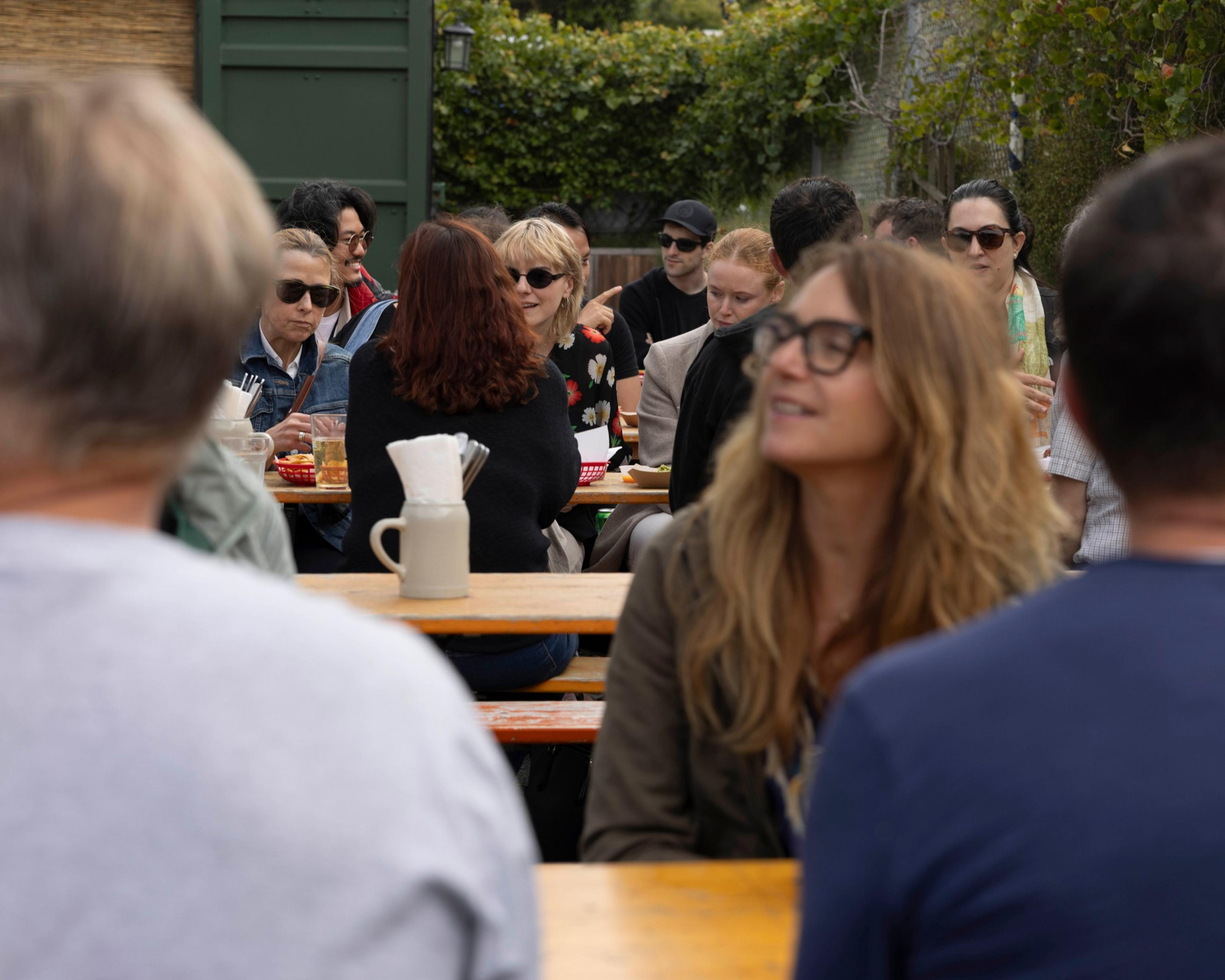San Franciscans are lodging record numbers of noise complaints against bars, decrying everything from “fucking annoying” dance music to “alcoholic German SOBs” roaming the streets.
“I can hear every word of ‘Dancing Queen’ from Jaxson due to their outside speakers while sitting in my bedroom,” reads one of thousands of complaints obtained by The Standard, referring to a Fillmore Street saloon. “Please make it stop.”
The grumbling shows no signs of letting up.
In the first eight months of this year, the city recorded 766 sound complaints against bars — dwarfing the 220 for all of 2018.
The complaints do not discriminate. Frequent targets include the grungy Kilowatt in the Mission, homey Biergarten in Hayes Valley, and Jaxson in the Marina, which bills itself as “San Francisco’s country bar.”
So why the rise in complaints?
Maggie Weiland, executive director of the San Francisco Entertainment Commission, said the city started approving more outdoor live music at bars as they reopened after the pandemic, at first because health restrictions wouldn’t let bands play indoors, but then by popular demand.
The Entertainment Commission logged 654 permits in 2019 and 960 in 2022, an increase of 47%.
“With an increased number of businesses we’re permitting, there’s also going to be more people who reach out and complain,” Weiland said.
She added that the city has hosted more outdoor events, like June’s Fred Again and Skrillex’s 25,000-person rave in Civic Center, which are included in the noise complaint counts.
Some bar owners have their own theories.

“I think a lot of people are a little bit too much on their phones,” said Biergarten owner Fabrizio Wiest. “They stay at home, and they are a little isolated. That’s kind of sad.”
“My impression is that the 311 app has made it super easy to complain about anything that’s bothering you,” said Bob Wait, owner of the Page in the Lower Haight.
He might be onto something. Since 2018, the number of 311 app users has more than quadrupled, and overall complaints have steadily increased, according to the city administrator’s office.
But that hardly matters to Albert Sammons Jr., a neighbor of the Page who complains to 311 the old-fashioned way: with a phone call.
“He doesn’t necessarily need to have music outside,” Sammons said, referring to Wait’s permit that allows outdoor music for no more than four hours between 12 p.m. and 8 p.m. “That’s a privilege, not an entitlement.”
Sammons estimated that he has submitted more than a dozen 311 complaints against the bar. He said he has to wear earplugs to block out the music and doesn’t like when the bar’s patrons “block the sidewalks.” And he skewered the Entertainment Commission, whose inspectors have never found the bar to be out of compliance.
“Anybody who knows anything about acoustics knows that sound travels,” Sammons said. “They need to reevaluate the so-called regulations.”
Wait said that after the pandemic, it was a “joyous thing” to bring live music back to the Page, and the bar started hosting bands six days a week rather than only on Wednesdays.
“You can see it as a continual intrusion on your life or as the heartbeat of the people around you,” Wait said.
“The music’s not even good,” Sammons said. “It’s pedestrian.”
Mark Para knew what he was getting into when he rented an apartment above the Mix in the Castro, the city’s most-complained-about bar since 2018.
“In my mind, that was part of the price of admission, as it were,” said Para, who has lived in the unit for more than 20 years.
He never had a problem with the bar until it reopened after the pandemic. Then, he felt the music was played louder and later than ever before.
So when the bar applied for an expanded music permit in 2022, Para spoke for a handful of his building’s residents at the Entertainment Commission’s hearing, railing against the later hours.
The bar wanted a cutoff time of 11 p.m. on weekdays and 1 a.m. on weekends. Neighbors wanted 10 p.m. and midnight.
The commission ended up siding with the neighbors — but promised to track complaints and said that if all went well, the Mix could reapply for expanded hours.
“If that ever happens, I would definitely be at that meeting,” Para said, adding that he was pleased with the compromise and hasn’t had a problem since. “Everybody’s trying to do what they can for each other, and it makes me happy.”
The Mix did not reply to a request for comment by publication time.
Sammons, the prolific 311 caller, said he’s a retired veteran on a fixed income living in a rent-controlled apartment and doesn’t have anywhere else to go.
“I’m an old man complaining about young people having a good time,” Sammons said. “But what can I do? What are my other options? There’s nobody advocating for me.”
He said he plans to continue lodging complaints despite believing that the Page and the Entertainment Commission won’t cede to his demands.
“It doesn’t take me but five minutes to submit the complaint,” Sammons said. “I’m going to give them bureaucracy. It’s going to cost them something — not me.”
The Entertainment Commission director said that while the agency wants to balance everybody’s needs, the complaints are a sign that the city is moving in the right direction.
“San Francisco is more fun, and therefore there are more people who might be annoyed,” Weiland said.

